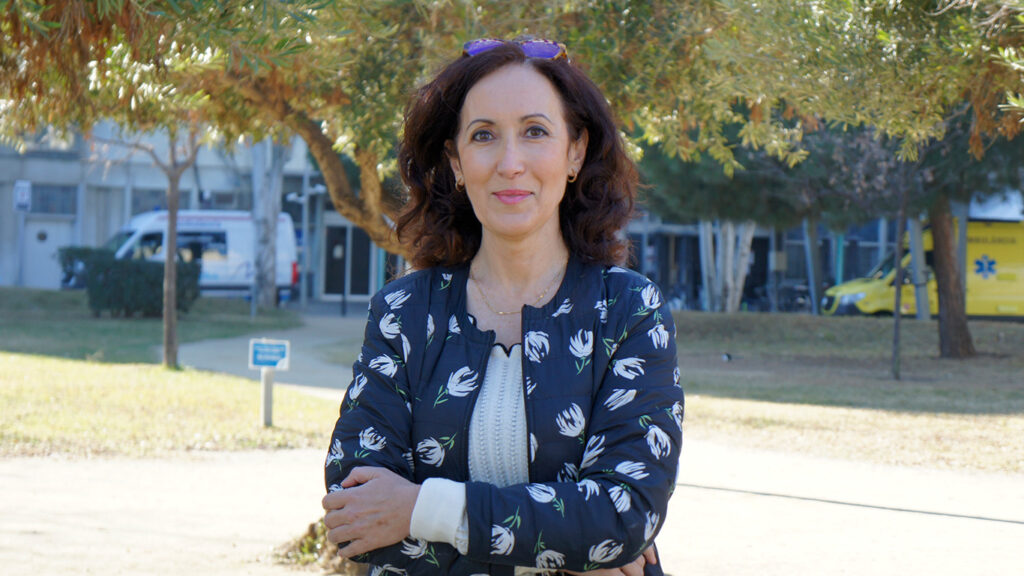A research team led by Aurora Pujol, principal investigator at the Bellvitge Biomedical Research Institute (IDIBELL) and the CIBER area of Rare Diseases (CIBERER), and Dr. Carlos Casasnovas, from IDIBELL and the Bellvitge University Hospital, developed an innovative computational algorithm called ClinPrior. This algorithm demonstrated its ability to improve the diagnosis rate in patients with rare diseases of genetic origin.
Detection of rare diseases is a constant challenge in the medical field, and although whole exome sequencing (WES) and whole genome sequencing (WGS) are very valuable techniques, there remains a need to identify faster methods. Most current tools use patient phenotypic information to prioritize genomic data but are often limited by incomplete knowledge of gene phenotypes stored in biomedical databases and lack of evaluation in real-world patient cohorts.
The ClinPrior algorithm addresses these limitations in an innovative way. It uses standardized patient phenotypic characteristics, based on the Human Phenotype Ontology, to classify candidate causal variants. Subsequently, through a prioritization approach based on a network of protein interactions, it propagates the data to identify the variants with the greatest chance of success.
In a prospective series of 135 families affected by Hereditary Spastic Paraplegia (HSP) and/or Cerebellar Ataxia (CA), two rare diseases of neurodegenerative origin, “ClinPrior achieved a positive diagnosis rate of 70%, which represents two times the cases that are diagnosed with the current tools used in diagnostic centers”, according to Dr. Pujol.
In addition to its direct impact on diagnosis, ClinPrior allowed researchers to create a network of interactions specific to HSP/CA disorders, enabling future diagnoses and the discovery of new genes associated with these pathologies. In recent years, the group led by Aurora Pujol identified 10 new genes that cause ultra-rare diseases of the nervous system.
In the words of Dr. Pujol, “ClinPrior represents a crucial advance in clinical genomic diagnosis. Its focus on standardized phenotypic information and protein interaction data not only improves the identification of atypical cases but also effectively predicts new causative genes of diseases whose relationship with human illness did not previously exist. This tool allows us to reduce the tedious diagnostic processes, these diagnostic Odysseys that families suffer in search of a name for their illness for several years, and at the same time, increase scientific knowledge about the functioning of the human brain“.
In addition to Dr. Pujol’s group, the research groups of Eduardo López-Laso from the Foundation for Biomedical Research of Córdoba – FIBICO; Mireia Del Toro and Alfons Macaya, from Vall d’Hebron Research Institute – VHIR; Luis G. Gutiérrez-Solana, from the Madrid Health Service; Carme Fons from the Sant Joan de Deu Hospital in Barcelona and Luis A. Pérez Jurado, from the Pompeu Fabra University. Likewise, it has had the collaboration of the research group of Adolfo López de Munain, scientific director of CIBERNED and head of the Neurosciences Area of the IIS Biodonostia.
The Bellvitge Biomedical Research Institute (IDIBELL) is a biomedical research center created in 2004. It is participated by the Bellvitge University Hospital and the Viladecans Hospital of the Catalan Institute of Health, the Catalan Institute of Oncology, the University of Barcelona and the City Council of L’Hospitalet de Llobregat.
IDIBELL is a member of the Campus of International Excellence of the University of Barcelona HUBc and is part of the CERCA institution of the Generalitat de Catalunya. In 2009 it became one of the first five Spanish research centers accredited as a health research institute by the Carlos III Health Institute. In addition, it is part of the “HR Excellence in Research” program of the European Union and is a member of EATRIS and REGIC. Since 2018, IDIBELL has been an Accredited Center of the AECC Scientific Foundation (FCAECC).

